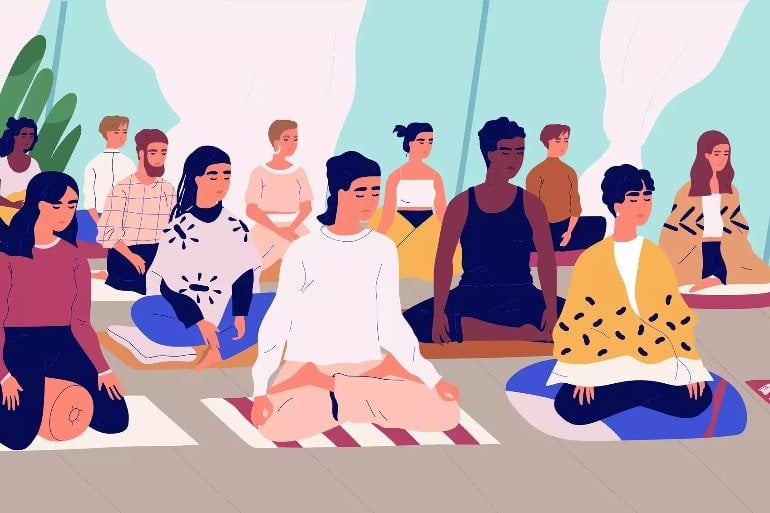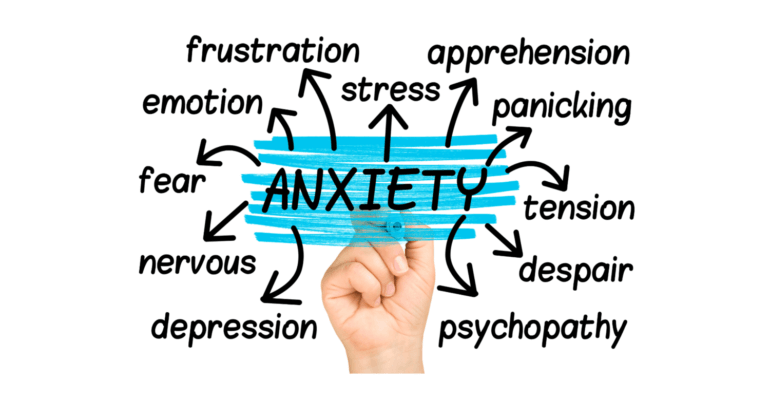Conquer Anxiety: 10 Simple But Powerful Techniques To Live Stress-Free
Are you tired of feeling anxious, overwhelmed and constantly stressed? Don’t give up hope just yet! In this article, I’m going to share with you 10 simple but powerful techniques for overcoming anxiety, freeing your mind from worry and providing a renewed sense of inner peace. Keep reading to learn about these life-changing strategies for conquering anxiety!

What is Anxiety?
Anxiety is a normal emotion that everyone experiences at one point or another. It is a feeling of apprehension, fear, or worry. When a person feels anxious, they may experience physical symptoms such as a racing heart, sweating, and trembling.
While anxiety is a normal emotion, it can become a problem when it is excessive and interferes with daily life. People who suffer from anxiety may have trouble sleeping, concentrating, and functioning in their everyday lives. For some people, anxiety can be so debilitating that it leads to avoidance of feared situations and places.
:max_bytes(150000):strip_icc()/dsm-5-criteria-for-generalized-anxiety-disorder-1393147_v2-902be69757414cc7a517ef3ca9838b59.png)
Benefits of Managing Your Anxiety
There are many benefits to managing your anxiety. When you have anxiety, it can feel like your whole life is consumed by worry and stress. However, there are steps you can take to manage your anxiety and live a more fulfilled life.
Some benefits of managing your anxiety include:
1.Reduced stress and worry:
2.Improved sleep
3.Increased productivity
- Improved relationships
- Increased self-esteem:
10 Simple Techniques for Overcoming Anxiety
Anxiety is a normal emotion that we all experience from time to time. It’s usually triggered by something in our environment, such as a upcoming deadline at work or a looming family conflict. But for some people, anxiety can be a much more debilitating condition that interferes with their day-to-day lives.
If you’re one of the millions of people affected by anxiety, there’s good news: there are simple but powerful techniques you can use to conquer your fear and live a stress-free life.
:max_bytes(150000):strip_icc()/breaking-the-anxiety-cycle-1392987_final1-33c957c290d14ffaba1f48518dc1a6cd.png)
- Breathing Exercises: When we’re anxious, our breathing becomes shallower and faster, which can lead to feelings of dizziness or lightheadedness. By consciously slowing down your breathing and taking deep, cleansing breaths, you can quickly reduce your anxiety levels.
- Visualization: When you’re feeling anxious, close your eyes and imagine yourself in a peaceful place. This could be somewhere you’ve been before – like the beach or a favorite hiking trail – or somewhere completely imaginary. picturing yourself in a calm and serene setting can help to chill you out and take the edge off your anxiety.
- Meditation: Meditation is a simple, but powerful technique that can help you conquer anxiety and live a stress-free life.
When you meditate, you focus your attention on your breath and let go of all other thoughts. This allows you to become more present and aware of the moment, which can help to calm and center you. Start by practicing for just a few minutes each day, and gradually increase the length of time as you get more comfortable with it.
- Exercise: Just as anxiety can be caused by sedentary behavior, regular exercise can be an effective way to combat anxiety. Exercise releases endorphins, which have mood-boosting effects. Additionally, exercise can help to take your mind off of anxious thoughts and provide a distraction from worry.
- Journaling: Journaling is a simple but powerful technique that can help you conquer anxiety and live a stress-free life. It can be used to track your thoughts and feelings, identify patterns and triggers, and develop coping strategies. Journaling can also be a therapeutic outlet for processing difficult emotions.
If you’re not sure what to write about, start by brainstorming a list of topics. Some ideas include: things that are worrying you; things that make you anxious; things that trigger your anxiety; things that help you cope with anxiety; and positive affirmations. Once you have a list of possible topics, choose one to focus on for each journaling session.
- Mindfulness Practices:
Mindfulness is the practice of being present in the moment. It is about being aware of your thoughts, feelings, and sensations without judgment. Mindfulness can help you to become more aware of your anxiety triggers and how to deal with them.
There are many mindfulness practices that you can try to help you conquer anxiety. One simple but powerful technique is to focus on your breath. When you feel anxious, take a few deep breaths and focus on the sensation of the air moving in and out of your lungs. This will help to ground you in the present moment and ease your anxiety.
Another mindfulness practice that can be helpful is to pay attention to your body. Notice where you feel tension or pain in your body and try to release it. Relax your muscles and breathe deeply into areas of tightness. This will help your body to relax and release the stress that is causing your anxiety.
Mindfulness practices can be very helpful in managing anxiety. By taking a few moments to focus on your breath or body, you can bring yourself back to the present moment and ease your anxiety.
7) Problem Solving Exercises:
If you’re feeling anxious, one of the best things you can do is to focus on problem solving. Not only will this help you to feel more in control, but it can also help to take your mind off of whatever is causing your anxiety.
There are a number of different problem solving exercises that you can try, and the best one for you will depend on the nature of your anxiety and what works best for you personally. However, some exercises that can be helpful include:
– Breaking down your anxiety into smaller, more manageable parts. For instance, if you’re anxious about an upcoming test, break down the task into smaller steps such as studying for one hour each night.
– Trying to come up with alternative solutions to your problem. If you’re anxious about a situation at work, brainstorm different ways that you could handle it
8) Cognitive Behavioral Therapy (CBT)
Cognitive behavioral therapy (CBT) is a Simple But Powerful Technique To Live Stress-Free that has been proven to be effective in treating anxiety. CBT works by helping you to identify and change the thoughts and behaviors that are contributing to your anxiety.
One of the most important aspects of CBT is learning how to control and manage your anxiety triggers. A trigger is anything that makes your anxiety worse. Common triggers include specific places, situations, objects, or people. By learning to identify and avoid your triggers, you can help to reduce your symptoms of anxiety.
Another important aspect of CBT is learning how to deal with stressful situations in a more positive way. This can involve learning new coping and problem-solving skills. With practice, these skills can help you to better manage stressful situations in your life and reduce your overall levels of anxiety.
9) Lifestyle Habits That Help Reduce Stress:
We all experience stress from time to time, but when it becomes a constant companion, it can take a toll on our physical and mental health. Thankfully, there are lifestyle habits we can adopt that help reduce stress. Here are some of the most effective:
Regular exercise, Eat a healthy diet, Get enough sleep, Take breaks throughout the day Connect with loved ones and friends.
10) Talk to Others and Seek Support
If you’re struggling with anxiety, it’s important to reach out to others for support. Talk to your friends and family members about what you’re going through. They may be able to provide emotional support and understanding.
It can also be helpful to seek out professional help. A therapist can provide guidance and coping strategies for dealing with anxiety. If you’re not sure where to start, ask your doctor for a referral.

